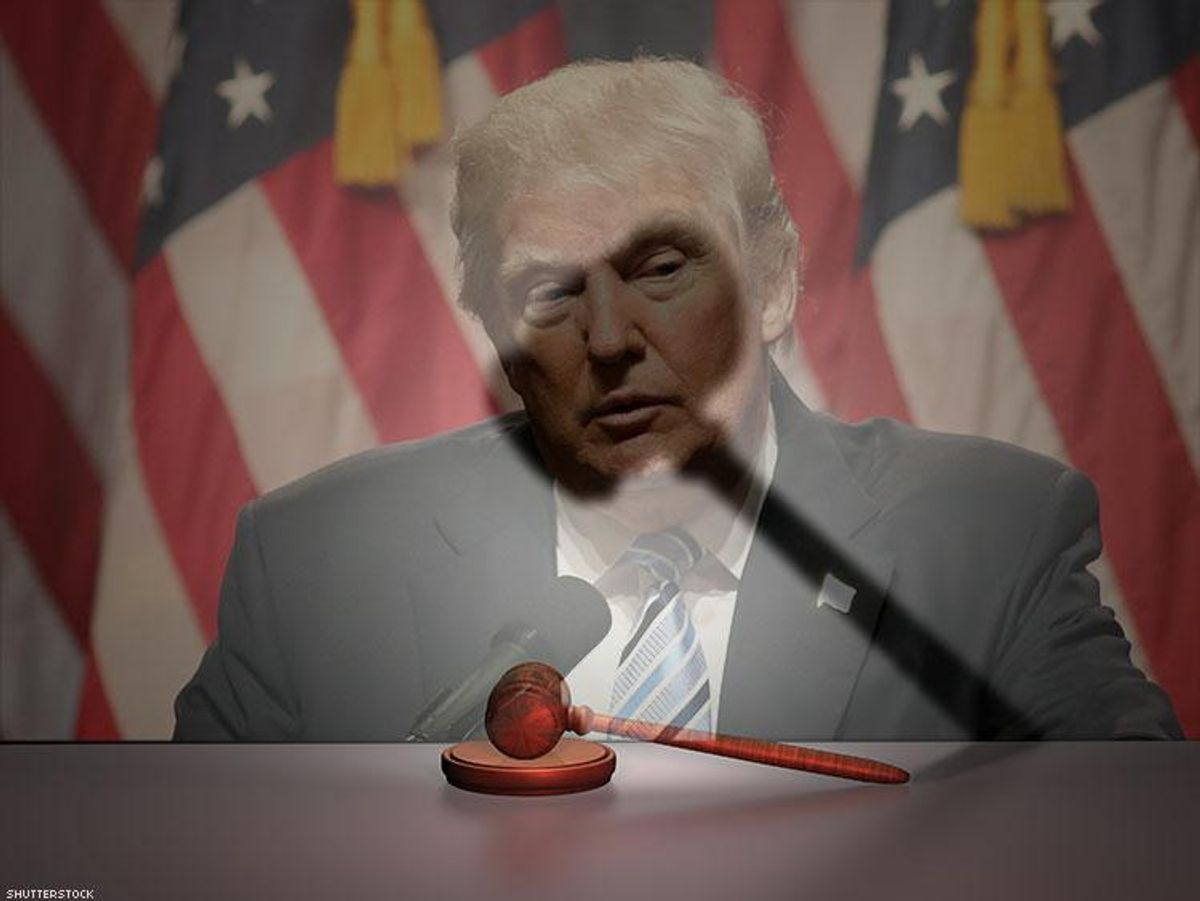The collapse of the dangerous American Health Care Act showed that President Trump's fabled deal-making skills may not be enough for him to push his agenda through Congress. Indeed, the Republican Party's failure to repeal the Affordable Care Act wasn't only a sign of the incompetence of the nascent Trump administration, it was also proof that grassroots organizing works: Voters showed up at town hall meetings, wrote letters, and called their elected representatives to share their stories about how the Affordable Care Act benefited their families and communities.
But Donald Trump and his conservative allies know that acts of Congress and executive orders aren't the only way to advance their extreme agenda. With a historic number of vacancies in the federal judiciary, Trump is poised to shift the third branch of government far to the right.
There are over 100 vacancies, or open seats, on the federal courts, largely as a result of years of Senate Republican obstruction of President Obama's effort to fill those seats. Republicans even kept a seat on the Supreme Court open for over a year in hopes that a GOP president would fill the vacancy.
Trump's nomination of Neil Gorsuch shows that he intends to nominate only far-right judges to the bench.
Throughout the presidential campaign, Trump pledged to nominate judges who oppose abortion rights and who are critical of decisions like Obergefell, the Supreme Court's marriage equality ruling. Trump even promised to outsource the entire process of picking judges to two far-right interest groups, the Federalist Society and the Heritage Foundation, the latter being an organization so extreme that its president believes gay people shouldn't be allowed to be teachers.
Gorsuch has a track record of outright hostility to workers' rights, disability rights, and women's rights. There are also indications that Gorsuch would try to roll back LGBTQ equality if given the opportunity.
Conservatives know that the court system often has the last word on major policies and that the most contentious decisions can come down to a single justice. The Affordable Care Act was upheld by just one vote; Obama's clean energy plan was blocked by one vote; state laws outlawing same-sex marriage were struck down by one vote; the Voting Rights Act was gutted by one vote; long-standing campaign finance rules were uprooted in the Citizens United decision by one vote.
And that's just decisions made by the Supreme Court -- the vast majority of cases are decided by lower courts.
While Republicans may seem feckless in Congress for now, conservative judges on the bench can carry out their agenda in the courtroom. The courts are poised to decide cases that could imperil labor organizing and the funding mechanism that keeps Obamacare afloat. The high court is also likely to decide the constitutionality of the president's travel ban affecting people from several predominantly Muslim countries as well as the fate of transgender rights in public schools.
The same grassroots energy that went into fighting the Republican health care bill must also resist Trump's judicial strategy. As lifetime appointments, Trump's judges will have a vast impact on the country's future for decades to come and will have the power to block progressive policies or push conservative projects long after Trump has left office.
BRIAN TASHMAN is the senior research analyst at People for the American Way.

















































































Viral post saying Republicans 'have two daddies now' has MAGA hot and bothered